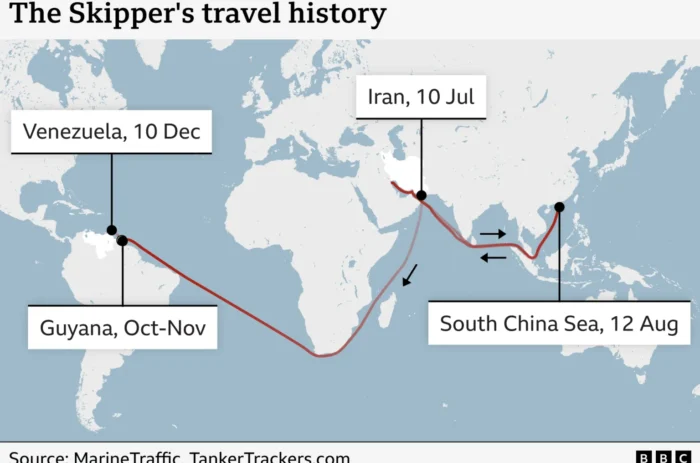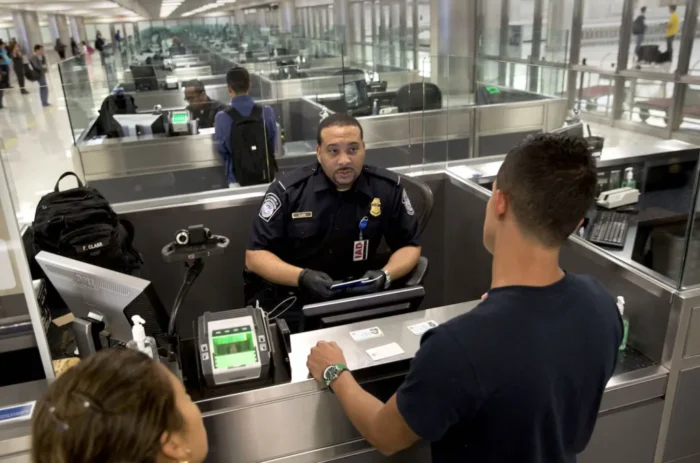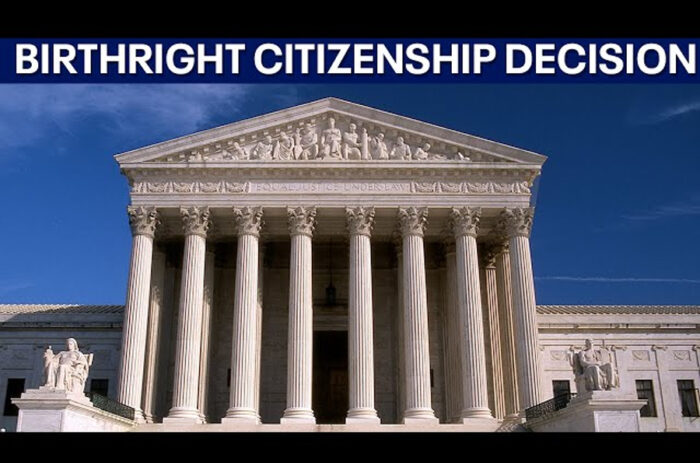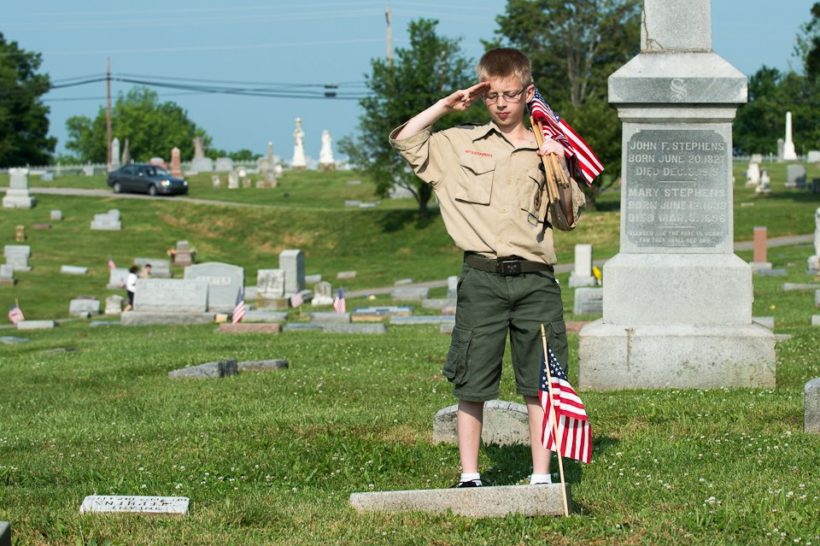
It is customary to honor fallen soldiers every Memorial Day by placing a small flag at their gravesite. Local Boy Scout troops often assist veteran’s organizations in carrying out this service.
redo Jump to...
print Print...
The following is from USMemorialDay.org:
Memorial Day started off as a somber day of remembrance; a day when Americans went to cemeteries and placed flags or flowers on the graves of our war dead. It was a day to remember ancestors, family members, and loved ones who gave the ultimate sacrifice.
But now, too many people “celebrate” the day without more than a casual thought to the purpose and meaning of the day. How do we honor the 1.8 million that gave their life for America since 1775? How do we thank them for their sacrifice? We believe Memorial Day is one day to remember.
We can do so by:
- visiting cemeteries and placing flags or flowers on the graves of our fallen heroes
- visiting memorials
- flying the U.S. Flag at half-staff until noon
- flying the ‘POW/MIA Flag’ as well (Section 1082 of the 1998 Defense Authorization Act)
- participating in a “National Moment of Remembrance” at 3 p.m. to pause and think upon the true meaning of the day, and for Taps to be played
- renewing a pledge to aid the widows, widowers, and orphans of our fallen dead, and to aid the disabled veterans
USMemorialDay .org has received many emails from people expressing their thanks for those who have served and gave the ultimate sacrifice for this country. The following, received in 1999 and used with the author’s permission, sums up all the emails USMemorialDay .org has received very elegantly, and is true to the original spirit and meaning of Memorial Day:
This weekend I am going to do something different. I am going to buy some carnations each day and go to one of the nearby cemeteries and walk through the sections for soldiers. When I find a grave that has no flowers, I’ll leave one and say a prayer for the family of that person, who for some reason could not bring their soldier flowers. I will pray for our country and all who serve or have served. For their families, who also serve by losing precious days, weeks and months spent with their loved ones who are off serving, preserving peace and the freedom we have in this country. I’ll pray for the families who paid the ultimate price, who’s loved ones died, or were taken captive and never returned. I’ll pray for anyone who may still be held in captivity and thinks perhaps they are forgotten. I do NOT forget. I’ll say a prayer for every person on the Internet who takes a moment from their time to come to sites like yours and be reminded of what this holiday really means. And I’ll say a prayer of thanks and ask God’s richest blessings on you.
Thank you again…. and God bless!
Sylvia Mohr
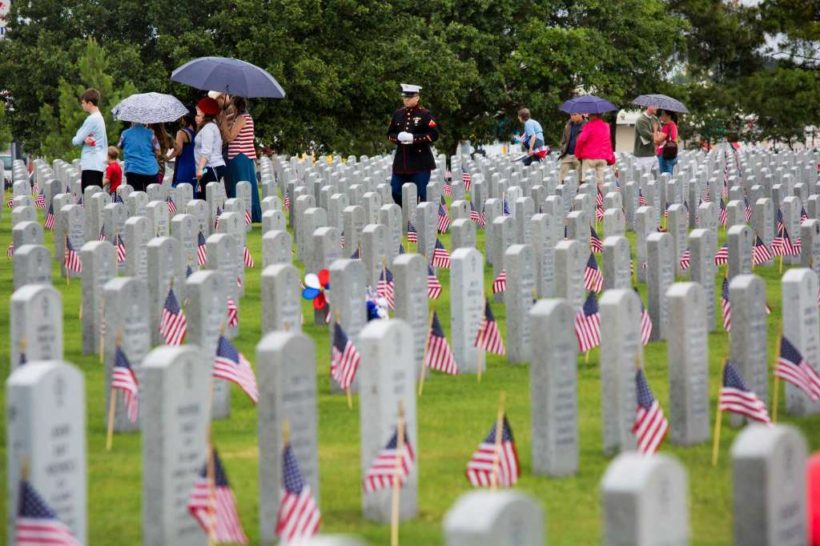
Families brave the rain and visit the graves of their U.S. serviceman and women on Memorial Day at the Houston National Cemetery, Monday, May 26, 2014, in Houston.
In fact, wonderful people in other nations sometimes show more of the true spirit and mission of the U.S. Memorial Day than we do here. For example, a 2001 USMemorialDay .org Guestbook entry from a citizen of the Netherlands states:
Hi,
In 1999 I laid flowers at the grave of a young U.S. fighter pilot who was KIA in my village in 1945. In the Netherlands I know of schools ‘adopting’ graves of Allied servicemen, keeping those graves in excellent condition ! Does anybody know of adopting graves in the U.S. by schools?
Sincerely,
Paul Patist Castricum, The Netherlands – Tue May 15, 2001.
More schools in the U.S. could follow the lead of the Netherland schools. Let us take a few moments this Memorial Day to reflect on the meaning of the day, to observe the day and be mindful of the sacrifices of others before we go and enjoy the freedoms they bought for us.
Reprinted from usmemorialday.org/observe.htm. For educational purposes only.
Questions
PLEASE NOTE: Daily posting and “Answers” emails end for the school year today.
We wish you a wonderful summer!
Check the website during the summer for occasional posts.
1. Why was Memorial Day originally called Decoration Day?
2. What was the original purpose for Memorial Day? When/how did it change?
3. List the suggestions provided by USMemorialDay.org for how Americans should observe Memorial Day.
4. This year consider how your family can take part in any of the activities from question #3. Sure, you can barbecue – but take some time during the day to honor our fallen soldiers. Do an internet search for “2018 Memorial Day events + the name of your town/city.” Consider attending the event that honors those who have died while in service.
5. a) Ask at least one grandparent how his/her family, school and community commemorated Memorial Day when he/she was a teenager.
b) Ask a parent how his/her experience differed from that of your grandparent.
Background
Watch the National Memorial Day Concert on Sunday, May 27th on PBS.
FACTS ABOUT MEMORIAL DAY:
- Originally called Decoration Day, from the early tradition of decorating graves with flowers, wreaths and flags, Memorial Day is a day for remembrance of those who have died in service to our country.
- Memorial Day was officially proclaimed on May 5, 1868 by General John Logan, national commander of the Grand Army of the Republic.
- Memorial Day was first observed on May 30, 1868 when a special ceremony was held at the Arlington National Cemetery where flowers were placed on the graves of Union and Confederate soldiers.
- Memorial Day was originally known as “Decoration Day.” The alternative name “Memorial Day” was first used in 1882.
- Moina Michael conceived of the idea to wear red poppies on Memorial day in honor of those who died serving the nation during war. She was the first to wear one, and sold poppies to her friends and co-workers with the money going to benefit servicemen in need. In 1921, her efforts resulted in the poppy being adopted as a symbol of remembrance for war veterans by the American Legion Auxiliary.
- Memorial Day is usually observed in the United States on the last Monday of May.
- Memorial Day was first enacted to honor Union soldiers of the American Civil War, but its scope was expanded after World War I to include all U.S. men and women who died while in the military service.
- The National Memorial Day Concert takes place on the west lawn of the United States Capitol and is broadcasted every year on PBS and NPR.
- Waterloo, NY was given an official recognition as the birthplace of Memorial Day on May 26, 1966, when President Lyndon B. Johnson signed a proclamation declaring the same.
- The National Moment of Remembrance, established by Congress in 2000, asks Americans, wherever they are at 3 p.m., local time, on Memorial Day, to pause in an act of national unity for a duration of one minute. The time 3 p.m. was chosen because it is the time when most Americans are enjoying their freedoms on the national holiday. The Moment does not replace traditional Memorial Day events; rather, it is an act of national unity in which all Americans, alone or with family and friends, honor those who died in service to the United States. (At this time, NASCAR has its drivers pull over mid-race. Major-league baseball pauses its games, and Amtrak trains blow their whistles.)
- The idea for the Moment was born when children touring the Nation’s Capital were asked by the Commission’s Director what Memorial Day means. They responded, “That’s the day the pool opens.”
Resources
Read about Memorial Day at memorialdayfoundation.org and usmemorialday.org.
Visit the Military Times “Honor the Fallen” website for names of those who fought and died in Iraq.
U.S. military casualties of war from the Revolutionary War until now, see the wikipedia entry.
Read about two Memorial Day traditions below:
THE PLAYING OF TAPS became a standard component to U.S. military funerals in 1891. It is sounded during each of the 2,500 military wreath ceremonies conducted at the Tomb of the Unknown Soldier every year, including the ones held on Memorial Day. Taps is also sounded nightly in military installations at non-deployed locations to indicate that it is “lights out,” and often by Boy Scouts, Girl Scouts and Girl Guides to mark the end of an evening event such as a campfire. Read the history of Taps at: west-point.org/taps/Taps.html
While there are no official lyrics for Taps, the following unofficial verse (author unknown) is often used:
Fading light dims the sight,
And a star gems the sky, gleaming bright.
From afar drawing nigh — Falls the night.Day is done, gone the sun,
From the lake, from the hills, from the sky;
All is well, safely rest, God is nigh.Then good night, peaceful night,
Till the light of the dawn shineth bright;
God is near, do not fear — Friend, good night.
Watch Taps being played in Arlington National Cemetery:
THE WEARING OF POPPIES in honor of America’s war dead is traditionally done on Memorial Day. The practice of wearing of poppies takes its origin from the poem In Flanders Fields, written in 1915 by John McCrae.
Have you ever read the poem “In Flanders Fields”?
Have you ever given money to a veteran offering poppies at supermarkets or church?
Do you know how this tradition first began or what is done with the money collected?
For history of the poppies, go to:
- the Veterans of Foreign Wars vfwpost7706.org
- greatwar.co.uk/article/remembrance-poppy.htm
IN FLANDERS FIELDS
by John McCrae
In Flanders fields the poppies blow
Between the crosses, row on row,
That mark our place; and in the sky
The larks, still bravely singing, fly.
Scarce heard amid the guns below.
We are the dead. Short days ago
We lived, felt dawn, saw sunset glow
Loved, and were loved, and now we lie
In Flanders fields.
Take up our quarrel with the foe:
To you from failing hands we throw
The torch; be yours to hold it high.
If ye break faith with us who die
We shall not sleep, though poppies grow
In Flanders fields.
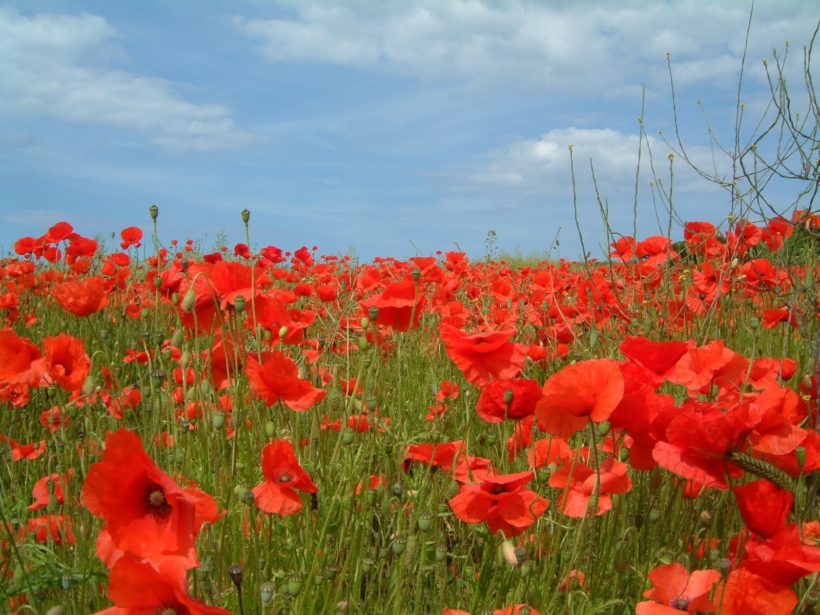
Daily “Answers” emails are provided for Daily News Articles, Tuesday’s World Events and Friday’s News Quiz.
